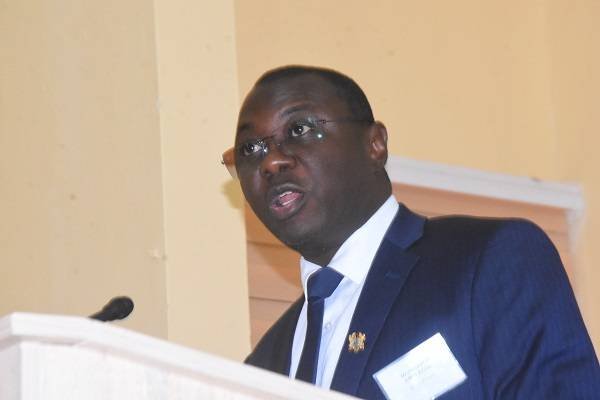Ghana is working to build 1,000 electric vehicle charging stations across the country within five years.
According to Dr Mohammed Amin Adam, Minister of State at the Ministry of Finance, the move formed part of the government’s plan to accelerate the country’s energy transition.
He said the installation of electric vehicle charging infrastructure in the country would put Ghana in a position to seamlessly shift from the use of petroleum fuelled vehicles to electric ones, as it was ongoing in many parts of the world.
He was speaking in Accra yesterday during a conference on Climate Finance for Sustainable Energy Transition in Africa.
Organised by the University of Ghana in partnership with the European University Institute and the European Commission, the event saw participants from various African countries including Nigeria and Kenya.
Dr Adam said Ghana could not be left behind in the development of electric vehicle charging infrastructure since the cars produced currently were infused with electric energy technology.
“We cannot wait for the world to develop and integrate new technologies while we do nothing. This is the time to build the infrastructure that will help in the use of electric vehicles in Ghana. If we fail to prepare, we will have to resort to re-engineering of vehicles which usually leads to fatal consequences,” he stated.
Sustainable energy transition in the West African sub-region, he said, held the promise of transforming economies, improving living standards, and ensuring a brighter future for all through the provision of clean and affordable energy to power industries, electrifying communities, and fuelling innovation.
In view of that, Dr Adam noted that, Ghana had developed a National Energy Transition Framework which includes a set of long-term policy recommendations to help decarbonise the energy sector and reach net-zero emissions by 2070 while ensuring socio-economic growth and using its natural resources.
He said, Ghana would require about US$600 billion dollars to achieve the set target and emphasised the importance of resource mobilisation from both the public and private sectors to aid investments in solar, wind, hydro, and geothermal energy projects.
The Minister called for the enhancement of energy efficiency and promotion of innovative technologies which were crucial components of energy sustainability and reiterated the need for further investments in research and development of energy storage solutions, smart grids, and electrified transportation to foster a more robust and interconnected energy network.
Dr Adam said the Ministry of Finance was ready to champion policies that incentivise investments in sustainable energy projects and create an enabling environment for private sector participation.
Professor Kenneth Amaeshi of the School of Transnational Governance, European University Institute (EUI) stressed the need for Africa to explore ways of using its own resources to finance their energy transition process.
This, he said, would ensure that Ghana and other African countries undergo energy transition at its own pace and were not rushed in adapting foreign energy transition policies and mechanisms that do not address local challenges.
He explained that the African Continental Free Trade Area (AfCFTA) provides African countries with the opportunity to develop its own technology and skills that would be needed in ensuring sustainable energy transition as well as the required investments through trade.
Prof. Peter Quartey, Director of the Institute of Statistical, Social and Economic Research (ISSER) of the University of Ghana, said, it was time Ghana commits more resources to enable the country’s energy transition by investing heavily in solar energy and improve natural resources extraction.
He stated that, the country could learn from best practices around the globe and develop regulations that promote local contents and ownership to enhance Ghana’s benefits in the energy transition space.
BY CLAUDE NYARKO ADAMS

